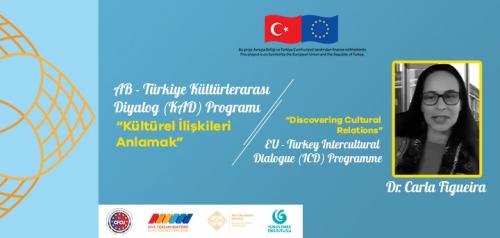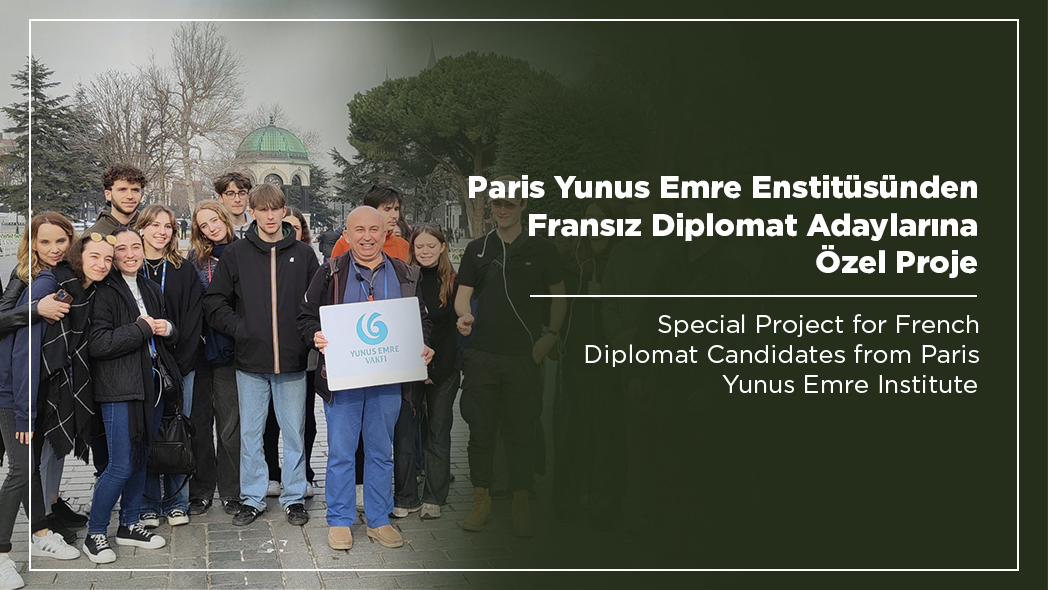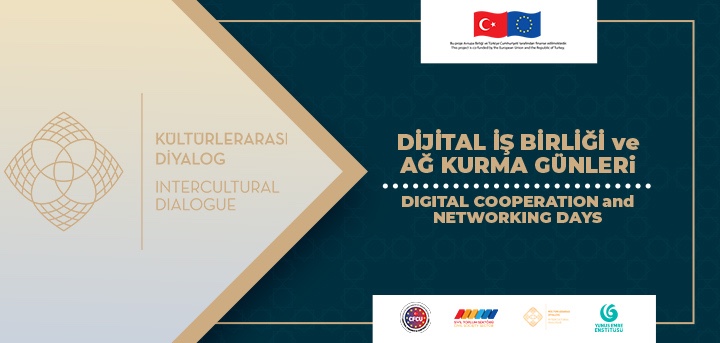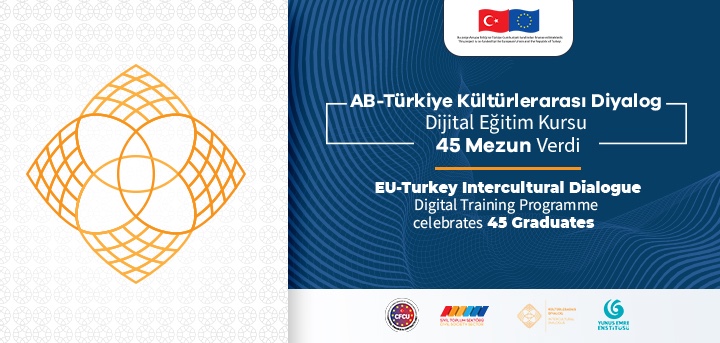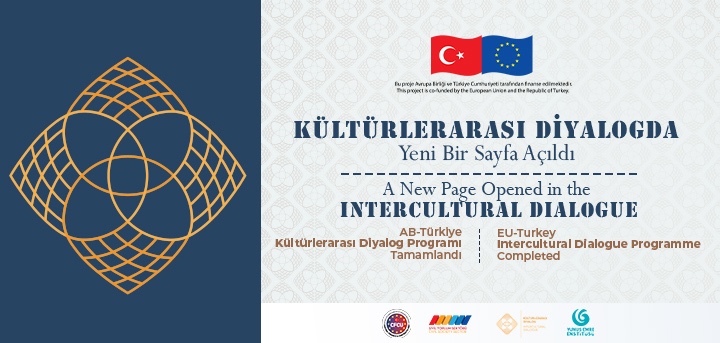"Understanding Cultural Relations" with Dr. Carla Figueira
During the webinar under the EU-Turkey Intercultural Dialogue Programme (IDP) conducted by Yunus Emre Institute and co-financed by Turkey and the EU, Dr. Carla Figueira delivered a presentation titled “Exploring Cultural Relations”. Cultural diplomacy, management of cultural relations, and the role of cultural diplomacy in international relations were discussed during the event. The event attracted broad participation by directors of the centers of Yunus Emre Institute worldwide, and set a platform for discussion on the contribution of the Institute's activities to cultural diplomacy.
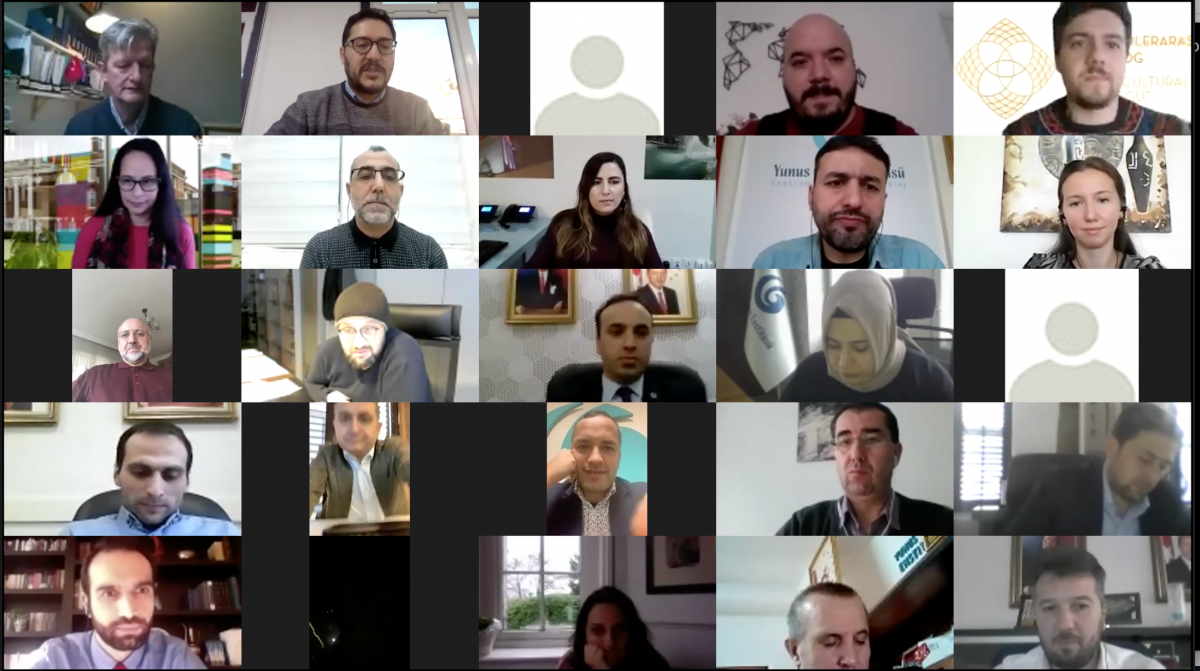 A new webinar was held under the EU-Turkey Intercultural Dialogue Programme (IDP) run by Yunus Emre Institute on the co-financing by Turkey and the EU. The webinar was held on December 3, 2020 and hosted Carla Figueira, who delivered a presentation titled "Exploring Cultural Relations".
A new webinar was held under the EU-Turkey Intercultural Dialogue Programme (IDP) run by Yunus Emre Institute on the co-financing by Turkey and the EU. The webinar was held on December 3, 2020 and hosted Carla Figueira, who delivered a presentation titled "Exploring Cultural Relations".
Figueira stated that governments used cultural diplomacy to achieve their foreign policy goals and that cultural diplomacy meant the use of soft power.
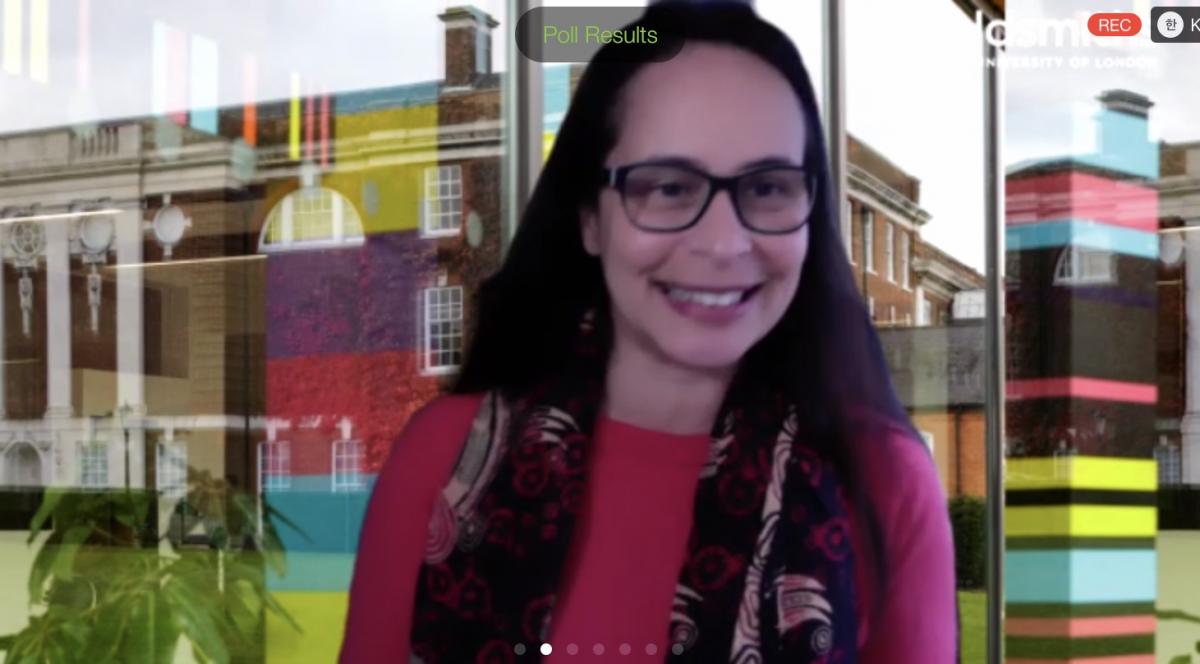 Noting that cultural diplomacy was a discipline under international relations, Figueira noted that cultural diplomacy emphasized the role of state actors. Figueira stated that cultural diplomacy held the assumption that “art, language and education are the most prominent elements in a culture” and connected this assumption to cultural policy.
Noting that cultural diplomacy was a discipline under international relations, Figueira noted that cultural diplomacy emphasized the role of state actors. Figueira stated that cultural diplomacy held the assumption that “art, language and education are the most prominent elements in a culture” and connected this assumption to cultural policy.
CULTURAL DIPLOMACY AS AN EXAMPLE OF SOFT POWER
Referring to the book titled "Soft Power: The Means To Success In World Politics" by Joseph Nye, an American political scientist, Figueira said that cultural diplomacy was "a great example of soft power", that it had the ability to persuade through culture, values and thoughts, and that it stood against the hard power that conquered and challenged.
FINDING A COMMON GROUND AND BUILDING RELATIONSHIPS
Figueira added that public diplomacy, which included cultural diplomacy, included understanding the needs of other countries, cultures and people, conveying our own perspectives, correcting misunderstandings, searching for space to find a common ground and developing relationships.
The presentation was followed by the Q&A session, during which concrete examples and solutions were discussed about the scope, goals and problems of cultural diplomacy activities by cultural centers.
BALANCE MATTERS IN CULTURAL DIALOGUE
Mehmet Karakuş, Director of London Yunus Emre Institute, asked Figueira the following question:
“We will use the work we do as the basis to determine the category in which we will position ourselves. We may not fit into a single category. This is a controversial subject: Are we going to call it cultural diplomacy or cultural relations? Will they all appear under public diplomacy? Our work seems to be one-sided from time to time. Although we try to stay away from propaganda, our work can be externally viewed as unilateral presentation. How do we strike that balance here? Should we only listen? Or should we only speak? Or should we have a meaningful dialogue between the two? Since our Institute highlights our cultural heritage, how can we follow a sound method to attain this balance?"
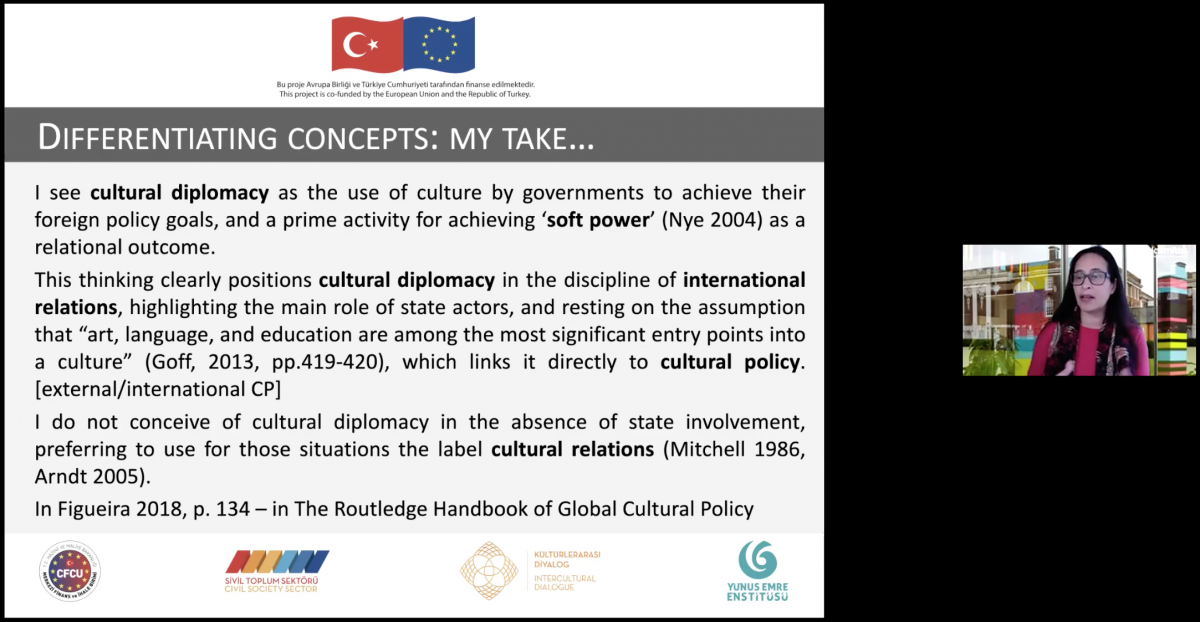
Figueira stated that it would be useful to follow an idealistic and practical way to that end. She noted that from a practical point of view, how much budget could be allocated on that matter was the main starting point and that it determined the extent to which we could diversify our activities. Figueira expressed that from an ideal point of view it was necessary to engage in a meaningful way and to be aware of the dialogue. She added that it was important to listen to the public opinion and to monitor the reactions on social media. Figueira highlighted the need to focus on what it meant to connect in a meaningful way to situations like a pandemic. Noting that the focus was on how to connect with people from the other side of the world in situations such as pandemic, that is, when it was not possible to travel, Figueira emphasized that it was important for Turkish cultural operators to communicate with other cultural operators in that sense. She stated that governments should therefore facilitate the work of cultural operators, and noted that the capacities of cultural operators should be increased in order to enable them to engage with each other and that cultural centers should make strong propaganda.
SHAPING PUBLIC PERCEPTION IN CULTURAL DIPLOMACY
Dr. Yılmaz Bulut, Director of Cologne Yunus Emre Institute, stated that cultural diplomacy was a very broad subject. Dr. Bulut expressed that the activities of every institute in cultural relations were not evaluated the same even if they were the same, and asked how such asymmetric relationships should be evaluated in cultural dialogues.
Figueira attributed the asymmetric perception on cultural centers despite delivering similar activities to the fact that some cultural centers had long formed their own perceptions in the international community. She explained that younger institutes had less experience in shaping grand narratives and public perception about them. Figueira emphasized that being an actor in international cultural relations took time. Emphasizing that well-established cultural centers operating in that field had been operating since colonialism, Figueira stated that if investments were made in cultural relations, engagement and dialogue, a similar effect could be achieved and that change could not take place overnight.
Dr. Bulut emphasized that cultural dialogue should eliminate that asymmetrical position in line with the ideal of understanding each other in cultural diplomacy.
Carla Figueira works on international cultural relations at Goldsmiths University of London. She previously attended and instructed at various events under the EU-Turkey Intercultural Dialogue Programme.

